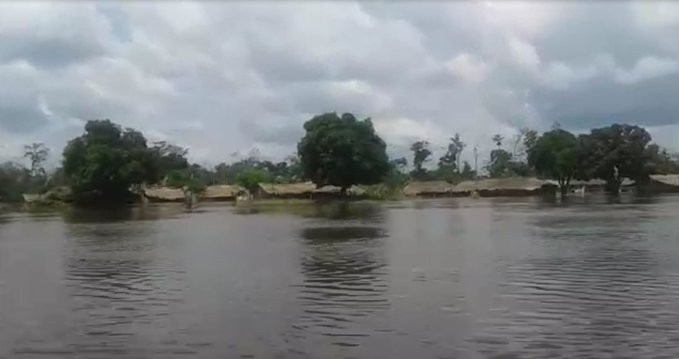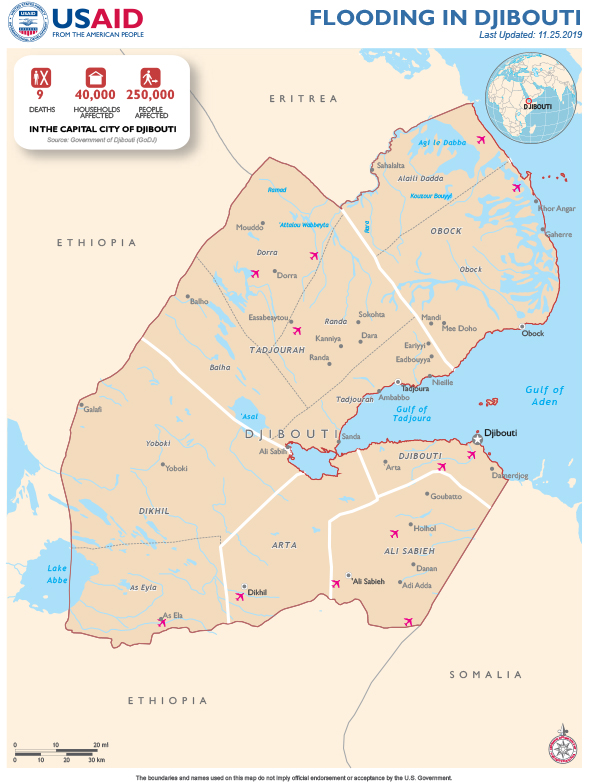- What We Do
- Agriculture and Food Security
- Democracy, Human Rights and Governance
- Economic Growth and Trade
- Education
- Environment and Global Climate Change
- Gender Equality and Women's Empowerment
- Global Health
- Humanitarian Assistance
- Transformation at USAID
- Water and Sanitation
- Working in Crises and Conflict
- U.S. Global Development Lab
Speeches Shim

Latest Djibouti Map
Djibouti Map - 11-25-2019 ![]() (pdf - 335k)
(pdf - 335k)
Key Developments
In November 2019, heavy rains triggered flash floods across Djibouti, impacting an estimated 250,000 people. The flooding resulted in significant damage to critical infrastructure in Djibouti city in particular, including homes, roads, schools, and shops. On November 24, 2019, the Government of Djibouti requested international assistance for flood relief efforts.
U.S. Ambassador to Djibouti Larry E. André issued a disaster declaration due to the humanitarian impact of flooding across Djibouti on November 25, 2019. In response, USAID provided $100,000 to the UN Development Program for emergency relief supplies to help people who were affected by the floods.
Background
Djibouti is susceptible to a range of natural disasters, including cyclical drought, frequent food insecurity, and flash floods. In addition, Djibouti hosts at least 27,000 refugees and asylum seekers from Ethiopia, Somalia, Eritrea, and Yemen, as well as hundreds of thousands of migrants from nearby countries. The population influx has strained Djibouti’s health and water, sanitation, and hygiene infrastructure, resulting in recurrent water-borne disease outbreaks across the country.


Comment
Make a general inquiry or suggest an improvement.